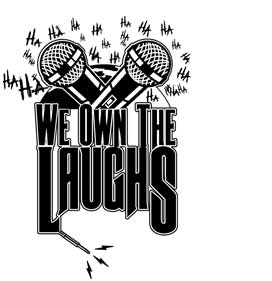Eddie Murphy reprises his iconic role as detective Axel Foley in “Beverly Hills Cop: Axel F” — the fourth installment in the franchise. He sits down with TODAY’s Al Roker and talk about working with his family on the movie and his plans to keep working in some capacity.
“I think I will keep being a creative person until the day I die,” he says.
Murphy’s winning streak continued with an entirely musical LP, How Could It Be, that spawned the No.2 US hit “Party All the Time,” supernatural comedy “The Golden Child” (1986) and the hugely successful “Raw” (1987) a theatrically-released stand-up show filmed at Madison Square Garden. Murphy first showcased his fondness for assuming multiple roles in the same movie in “Coming to America” (1988), playing the prince of a fictional African country as well as a soul singer and barbershop owner. After joining brother Charlie and comedy hero Richard Pryor in Prohibition-era “Harlem Nights” (1989), Murphy appeared in sequel “Another 48 Hrs” (1990) starred as a womanizing ad executive in “Boomerang” (1992) and collaborated with Michael Jackson on third musical album Love’s Alright. Murphy’s performances as a conman-turned-Congressman in political satire “The Distinguished Gentleman” (1992) and bloodsucker Maximilian in horror comedy “Vampire in Brooklyn” (1995) were met with both a commercial and critical shrug. But once again Murphy bounced back in style with memorable turns as both the good-natured Sherman Klump and his egotistical alter-ego Buddy Love, also donning latex to portray numerous other family members, in the hugely popular remake “The Nutty Professor” (1996). After adding another action comedy, “Metro” (1997) to his resume, Murphy kickstarted the family-friendly phase of his career with the role of the titular animal communicator in “Dr. Dolittle” (1998), going on to lend his voice to comic relief Mushu in Disney animation “Mulan” (1998) shortly after. But Murphy still continued to grace more adult-themed fare, starring as TV evangelist G in “Holy Man” (1998) and alongside Martin Lawrence in prison comedy “Life” (1999), pulling double duty as neurotic actor Kit Ramsey and his clueless brother Jiff in underrated Hollywood satire “Bowfinger” (1999) and voicing superintendent Thurgood Stubbs in the prime-time stop-motion animated sitcom he also co-created, “The PJs” (Fox, 1999-2001).
Murphy’s career in the ’00s often veered from the sublime to the ridiculous. He stole the show as the voice of wisecracking Donkey in “Shrek” (2001) and its three further installments, enjoyed huge box office success, if little critical acclaim, with “Daddy Day Care” (2003) and “The Haunted Mansion” (2003) and earned an Oscar nomination and a Golden Globe for his powerhouse turn as the James Brown-esque singer Jimmy in Broadway musical adaptation “Dreamgirls” (2006). But team-ups with Robert De Niro on “Showtime” (2002) and Owen Wilson on “I Spy” (2002) failed to produce any chemistry, audacious sci-fi “The Adventures of Pluto Nash” (2002) famously became one of the costliest flops of all time and the Razzie-dominating “Norbit” (2007), a tone-deaf comedy which stretched Murphy’s latex-wearing habits to breaking point, is widely regarded as his career nadir.
After wasting his considerable talents further in family-friendly vehicles “Meet Dave” (2008) and “Imagine That” (2009), Murphy reminded audiences of his natural magnetism playing a thief who helps numerous Ponzi scheme victims in “Tower Heist” (2011). But following another critical drubbing in “A Thousand Words” (2011), Murphy took a five-year break from the spotlight. He returned in surprising fashion with “Mr. Church” (2016), a low-key drama in which he starred as a cook who develops a bond with three generations of women, and went on to receive rave reviews for his portrayal of Blaxploitation filmmaker Rudy Ray Moore in biopic “Dolemite Is My Name” (2019).
That same year, it was confirmed that Murphy would be reprising his role as Prince Akeem Joffer in long-awaited sequel “Coming 2 America” (2020).



![The Random Convo Show w/ Aaron Grady Feat. Katie Florence [Video]](https://weownthelaughs.com/wp-content/uploads/2025/06/IMG_2429-238x178.jpeg)
![Going Dutch Feat. Jenn Sterger [Video]](https://weownthelaughs.com/wp-content/uploads/2025/06/IMG_2412-238x178.jpeg)
![Luke Mones Explained Feat. Maddy Smith [Podcast]](https://weownthelaughs.com/wp-content/uploads/2025/06/IMG_2409-1-238x178.jpeg)